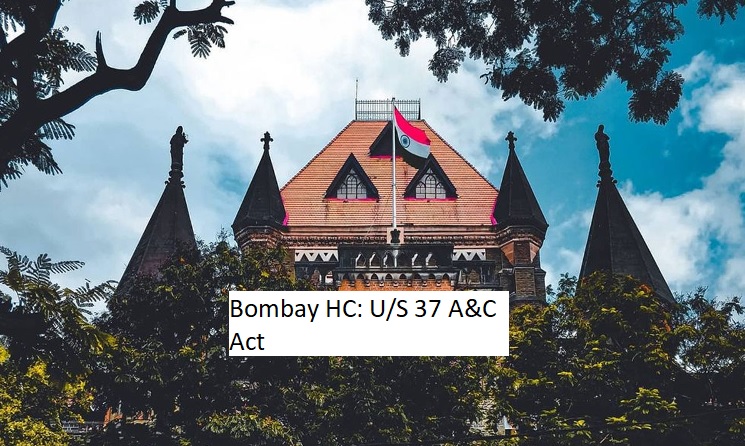


The Bombay High Court, presided over by Chief Justice Devendra Kumar Upadhyaya and Justice Arif. S. Doctor, rendered a significant judgment concerning challenges under Section 37 of the Arbitration and Conciliation Act, 1996 (A&C Act). The court articulated that challenges under this section must be intricately linked to the order issued under Section 34 of the Act, rather than merely contesting the arbitral award itself.
In a case involving an Appellant, a marine salvage company, and a Respondent engaged in offshore logistics and dredging, a Salvage Agreement was executed in October/November 2009 for the recovery of the dredging vessel "Sical Portofino." The agreement operated on a "no cure no pay" basis. However, disputes arose when the Respondent failed to provide the required security as outlined in the contract, leading to the termination of the agreement in December 2009. Despite subsequent efforts to communicate and furnish the necessary security, issues persisted.
Following the completion of salvage work, the Appellant issued invoices for salvage charges, which were duly paid. However, disputes continued, resulting in an Admiralty suit and subsequent arbitration. The Arbitral Tribunal, addressing various issues including claims, jurisdiction, waiver, and contract interpretation, ultimately dismissed both the Appellant's claim and the Respondent's counterclaim in an award dated April 18, 2015.
Post the Arbitral Tribunal's decision, the Appellant challenged the award under Section 34 of the Arbitration Act. However, this challenge faced dismissal in the Impugned Order. Dissatisfied, the appellant then filed an appeal under Section 37 of the Act.
The crux of the Appellant's contentions revolved around the tribunal's alleged misapplication of Section 55 of the Indian Contract Act. The Appellant asserted that the parties had expressly agreed that this section would not apply, a fact acknowledged in the Respondent's pleading. The tribunal's finding, extending beyond the Respondent's pleading, posited that by continuing the contract, the Appellant waived its right to claim compensation.
The High Court, in its scrutiny, observed that the Appellant's challenge was solely directed at the Arbitral Award without addressing the Impugned Order. Importantly, it emphasized that under Section 37 of the A&C Act, challenges must be intricately connected to the order under Section 34, requiring a party to pinpoint errors in the Section 34 order to substantiate an appeal under Section 37.
Moreover, the court underscored the restricted scope of such appeals, particularly when dealing with orders refusing to set aside an Arbitral Award. It acknowledged the proper constitution of the Arbitral Tribunal under the contract and the expertise of its members in maritime matters. Both the Arbitral Award and the Impugned Order were scrutinized, leading the court to affirm the dismissal of the Appellant's petition under Section 34 of the Arbitration Act.
Addressing the merits of the case, the court rejected contentions regarding the inapplicability of Section 55 of the Contract Act, waiver, and inconsistent findings. It highlighted the Respondent's assertion of waiver in the Statement of Defence, rendering irrelevant the cited Supreme Court judgment. The rejection of liquidated damages was also deemed justified, grounded in the substantive issue of entitlement to idle time charges rather than computational errors.
In conclusion, finding no infirmity in the Impugned Order, the Bombay High Court dismissed the appeal, providing clarity on the requisite nexus between challenges under Sections 34 and 37 of the A&C Act.
TAGS: Section 34 Impugned Order Arbitral Award Marine salvage Offshore logistics Dredging Salvage Agreement "Sical Portofino"